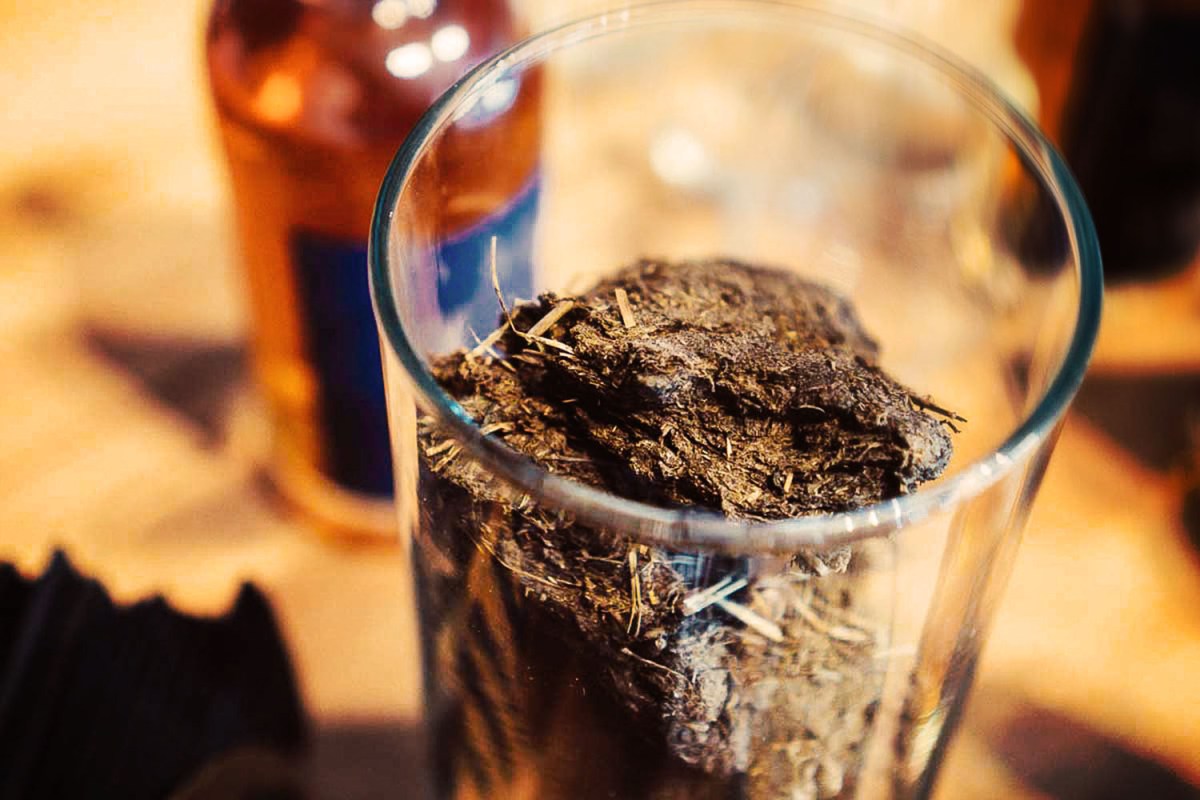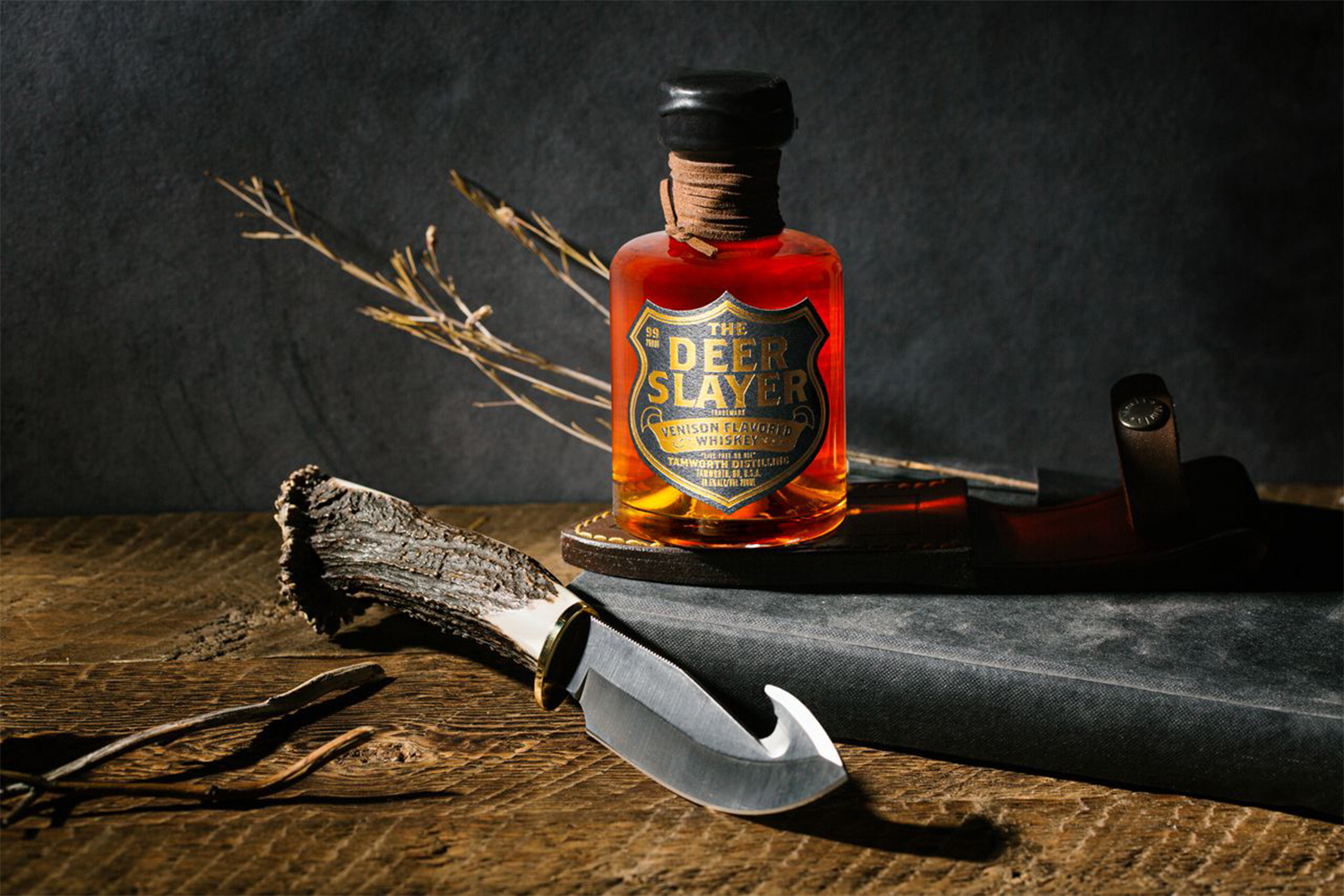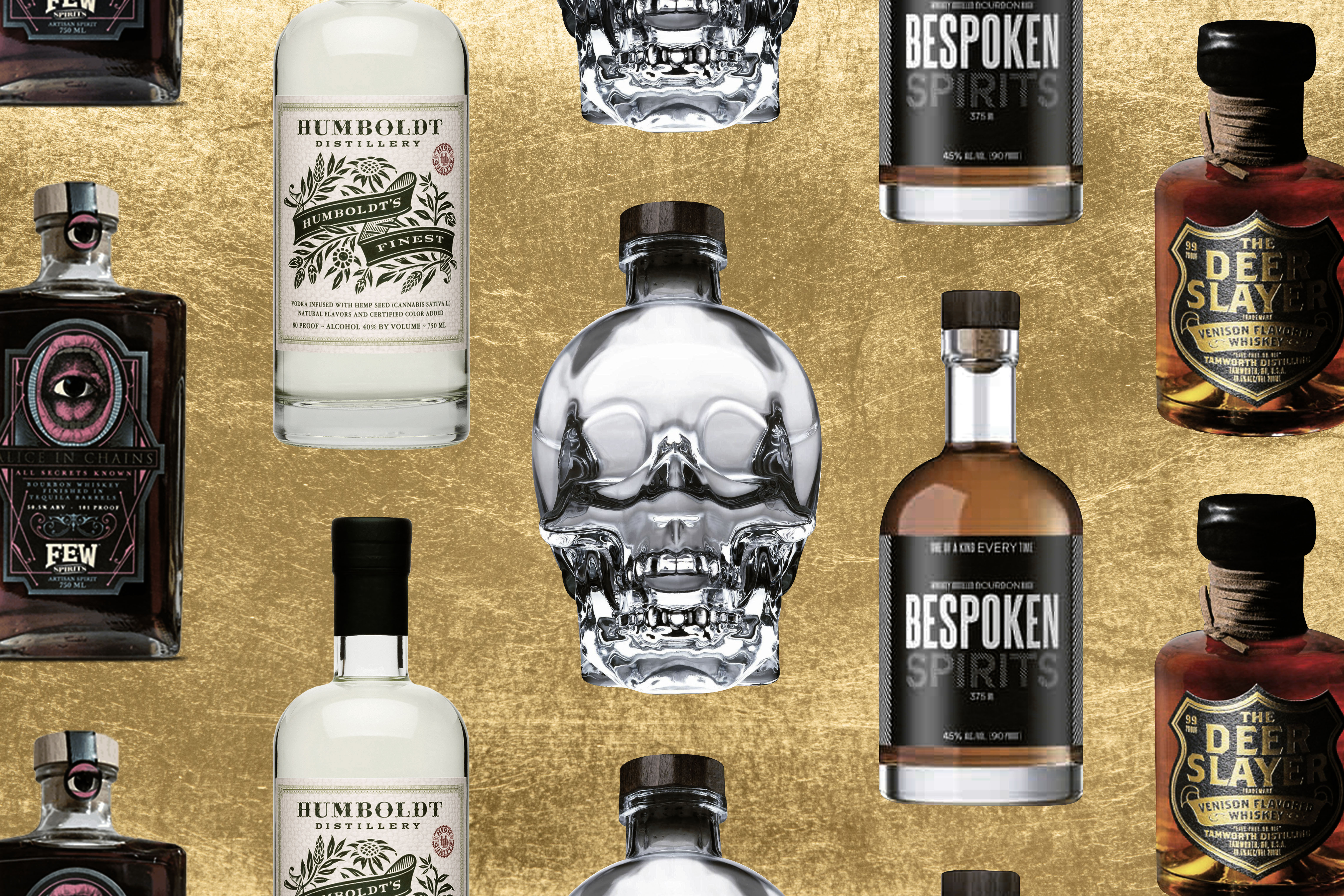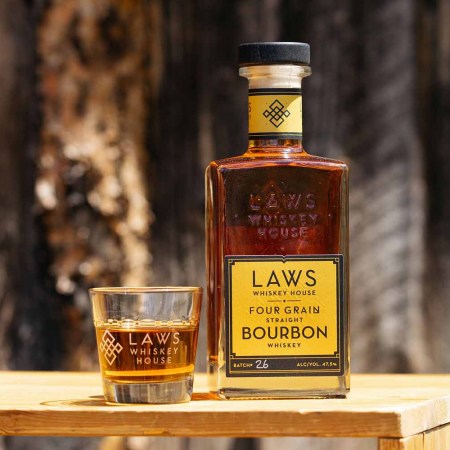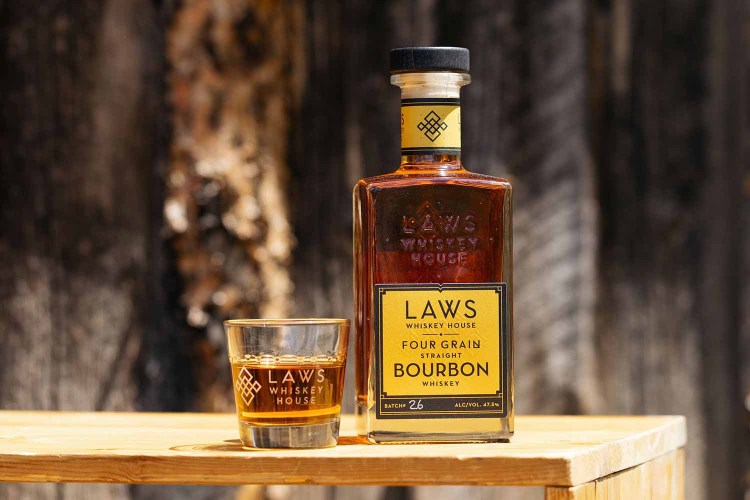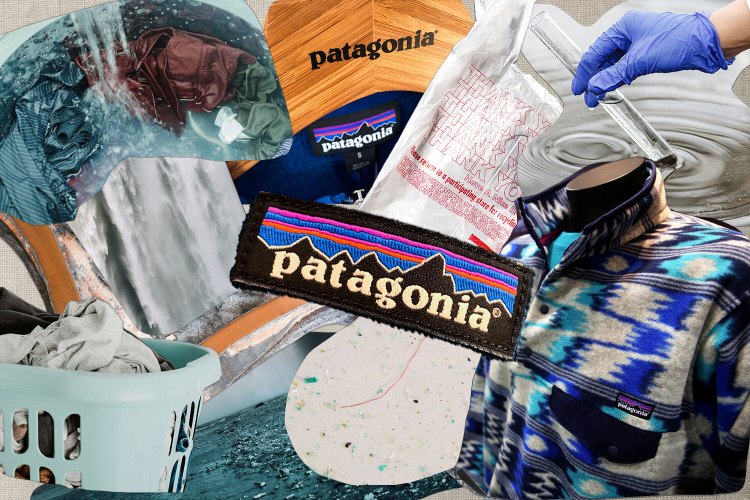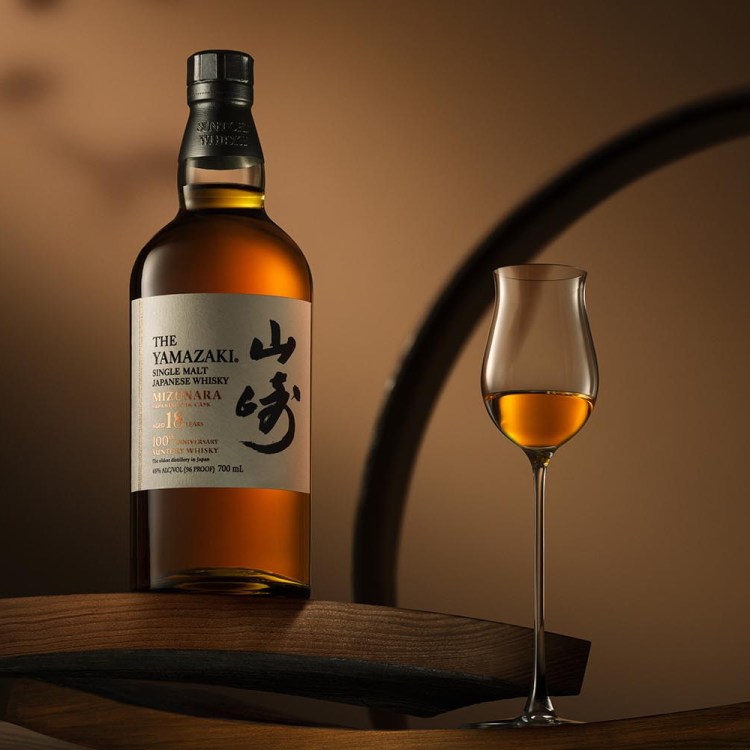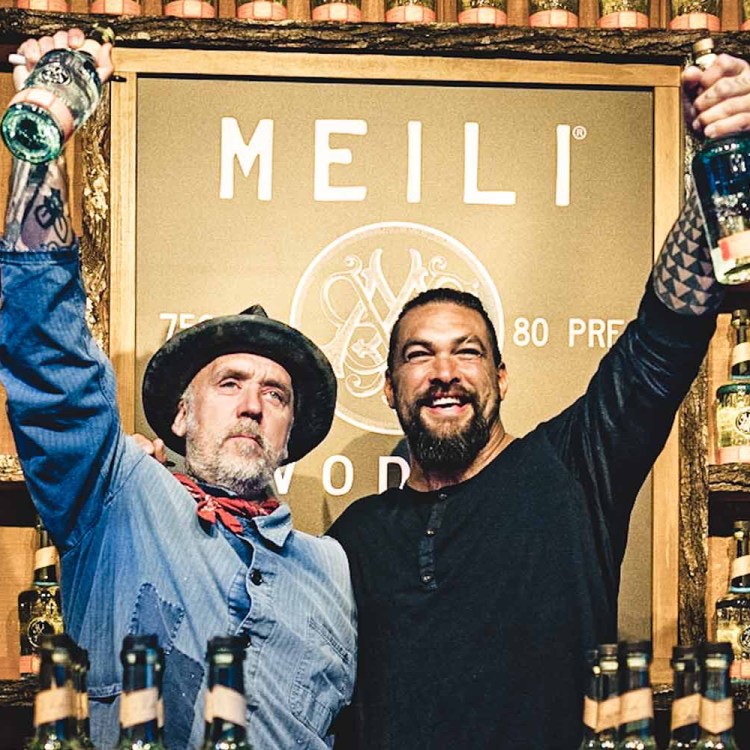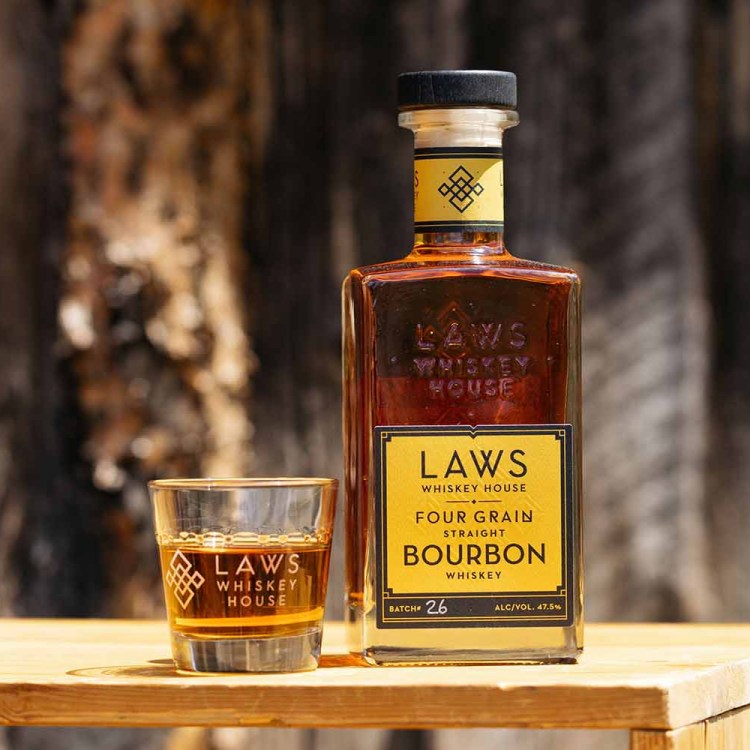In journalism, they say that if you can find three examples of a new or unusual phenomenon, you’re entitled to write about it as a trend.
Making distilled spirits with animal poop doesn’t quite meet that rigorous standard. There are, as far as I know, only two producers making use of this unusual ingredient, one distilling whisky in Iceland and the other gin in South Africa. That’s still two more than you might reasonably expect to exist, so I reached out to both of them to ask the obvious question: Why?
“We wanted to make an Icelandic take on whisky,” says Eva María Sigurbjörnsdóttir, distillery manager at Eimverk Distillery, just outside of Reykjavik. “We wanted to figure out what Icelandic whisky could be.” She began making Floki whisky with Icelandic barley and soon people began asking if she would produce a peated version. The idea of making a smoky single malt was appealing, but she knew she wanted to do it differently. “There was never any question. Of course, we’re going to do it the Icelandic way. And that’s using sheep dung.”
Sheep dung? It’s probably not the first thing you think of when you imagine visiting Iceland, but the stuff played an important role in the country’s practical and culinary history. When Norse settlers arrived in the unforgiving landscape more than a thousand years ago, they rapidly deforested the island with their demand for timber and land to graze their sheep. Conservation efforts that began in the twentieth century have helped protect and replenish Iceland’s trees, but the effects of that early settlement are still apparent. (Icelandic joke: What do you do when you get lost in an Icelandic forest? Stand up.)
With little wood left to burn, Icelanders turned to a resource they had in abundance: sheep poop. The animals spent winters excreting hay and trampling down their dung. When the spring arrived, the farmers were left with the unpleasant task of shoveling out the pens. Left to dry outdoors, it transformed into a useful fuel. While contemporary Icelanders no longer rely on burning dung to survive, they continue to enjoy traditional dung-smoked foods such as lamb, particularly on holidays. It might sound weird to non-Icelandic palates, but the resulting meats can be deliciously smoky.
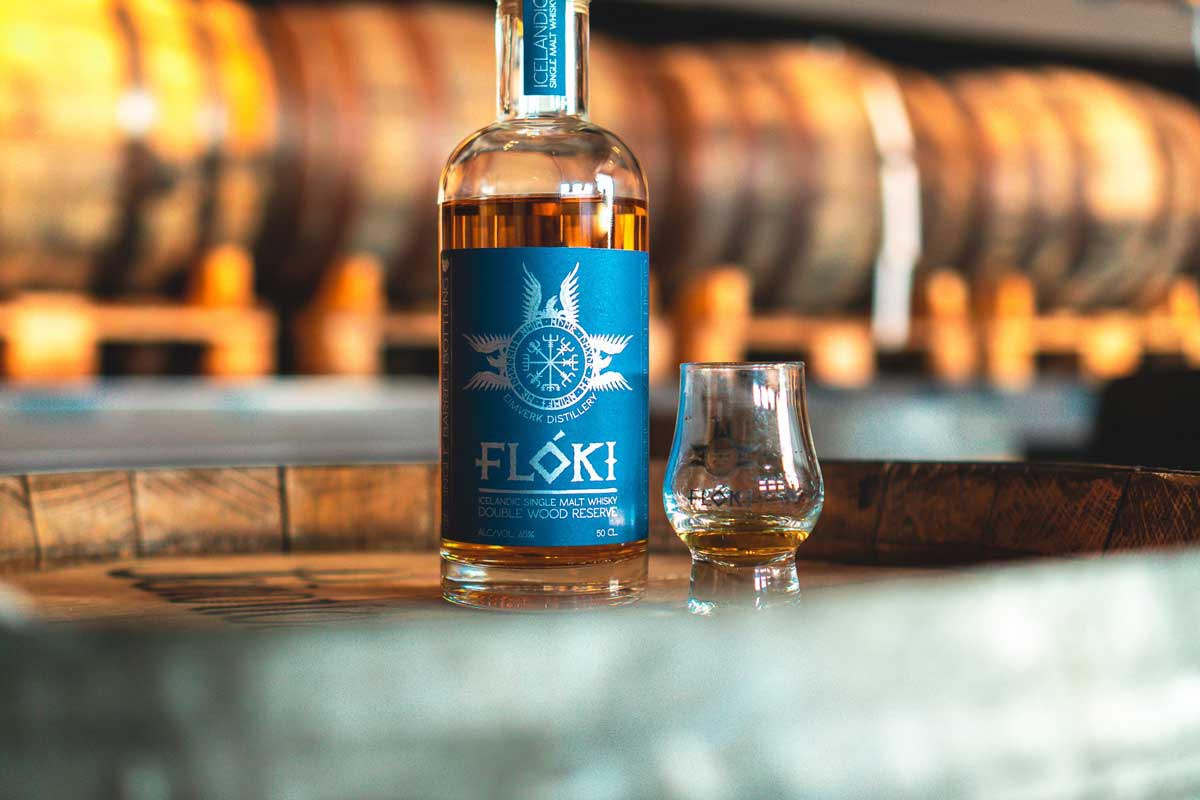
If you can use dung smoke in foods, why not in drink? “We do this quite similarly as in Scotland,” says Eva, referring to the use of peat smoke in the making of some Scotch whiskies. “We need to take moisture out of the barley when we harvest. Some of it is dried with sheep dung smoke; we just push the smoke in.” When this barley is added to the mash of Floki, it imparts a distinct smoky note to the finished spirit.
“We do subtle smoke, we don’t go all in with it. We try to be on the softer side of the smokiness,” she says. Lab analysis confirms that the whisky is characterized by guaiacol, a compound formed by burning plant matter. “This is a flavor that comes from the smoke that is really desirable, and we seem to get a lot of it.”
Science aside, part of the appeal of making dung-smoked whisky is embracing Iceland’s unique culinary heritage. Only a few farms continue the labor-intensive process of shoveling and drying sheep dung suitable for smoking, a process that takes more than two years in total. “The farmer we have been using thinks this is so funny that we are smoking barley to make whiskey with sheep dung,” says Eva. Funny, but also worth adding to one’s list of culinary adventures to seek out in Iceland.
When Les and Paula Ansley decided to make an elephant dung gin in South Africa, they were inspired less by tradition than by scientific whimsy. They’d both worked previously in academia and the idea of using botanicals harvested from elephant dung came to them while on a safari. “Because we come from a science background, we’re always asking questions,” says Les. “Paula said, ‘Do you think we can make elephant dung gin? Let’s see, let’s experiment.’”
Elephants are voracious eaters with inefficient digestive systems, producing copious piles of dung that are full of nutrients and relatively intact plant matter. In nature, those piles provide an all-you-can-eat buffet for species like dung beetles. For Les and Paula, they provide a bounty of elephant-foraged botanicals to flavor their unique gin, called Indlovu.
“It’s amazing what you find in there,” says Les, who collects the poo by following elephants around a game reserve, a task he finds more pleasant than the never-ending paperwork that comes with working in the spirits industry. (“We find the elephants because we need fresh dung.”) They then wash the dung to separate plant matter from the mud and leave it to air dry. The washing process and alcohol sterilize the botanicals. (If you’re concerned about the safety of dung-sourced botanicals, rest assured that Paula’s background is in immunology.)
To make the gin, Les and Paula begin with a base that’s close in style to a classic London dry, with botanicals such as juniper, angelica, orris and citrus. This is then infused with the elephants’ botanicals, which, Les says, gives it “a much richer, rounder taste … more earthy, deeper flavor.” Prior to making gin Les was more of a whiskey drinker and he wanted a gin that he could sip like a whiskey. Tasting Indlovu, I’d say they’ve succeeded.
An obvious question with regard to these two spirits made with animal dung is whether there’s a good reason for them or whether it’s all just marketing (ahem) bullshit. There’s certainly a dare factor to drinking them, and having a good story does help them stand out in the crowded market for spirits. Still, the decision to make them this way isn’t arbitrary. With the Floki whiskey, there’s no mistaking the contribution of the dung smoke, and it certainly ties into Icelandic foodways.
With the gin, too, Les points out that harvesting botanicals is not something you could do with just any animal. You need one with a quick-processing, inefficient digestive system, which rules out the ruminants. You can’t use a carnivore. The white rhino almost fits the bill, but its grass diet is too boring to be of interest to a gin maker. The varied diet of the black rhino is more intriguing, but presents a different challenge: rhinos use their dung middens as territorial markers, which would make shoveling them risky business. Smarter to trail behind a contented elephant who will give it up for free. (Indlovu pays the elephants back by donating a portion of their profits to conservation.)
Neither the smoked expression of Floki or the Indlovu gin are yet available in the United States, though they are hoping to export here soon. Both spirits are worth trying when the opportunity arises.
And who knows, maybe their success will inspire another dung spirit from an adventurous craft distiller. Then the list of spirits made with number two will number three and we will truly be able to call it a trend.
Join America's Fastest Growing Spirits Newsletter THE SPILL. Unlock all the reviews, recipes and revelry — and get 15% off award-winning La Tierra de Acre Mezcal.
